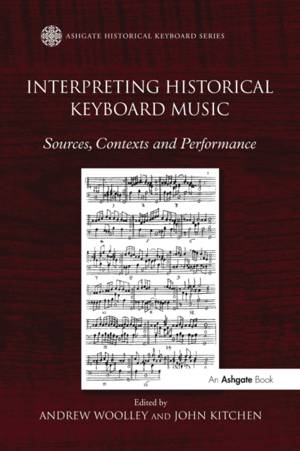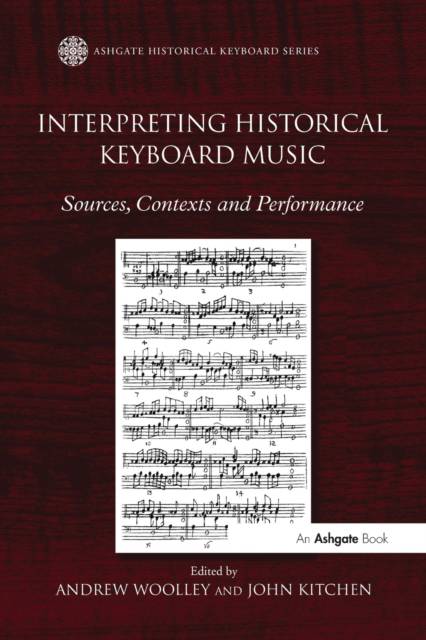
- Afhalen na 1 uur in een winkel met voorraad
- Gratis thuislevering in België vanaf € 30
- Ruim aanbod met 7 miljoen producten
- Afhalen na 1 uur in een winkel met voorraad
- Gratis thuislevering in België vanaf € 30
- Ruim aanbod met 7 miljoen producten
Zoeken
Interpreting Historical Keyboard Music
Sources, Contexts and Performance. Edited by Andrew Woolley, John Kitchen
Andrew Woolley, John Kitchen
€ 67,95
+ 135 punten
Uitvoering
Omschrijving
Research in the field of keyboard studies, especially when intimately connected with issues of performance, is often concerned with the immediate working environments and practices of musicians of the past. An important pedagogical tool, the keyboard has served as the 'workbench' of countless musicians over the centuries. In the process it has shaped the ways in which many historical musicians achieved their aspirations and went about meeting creative challenges. In recent decades interest has turned towards a contextualized understanding of creative processes in music, and keyboard studies appears well placed to contribute to the exploration of this wider concern. The nineteen essays collected here encompass the range of research in the field, bringing together contributions from performers, organologists and music historians. Questions relevant to issues of creative practice in various historical contexts, and of interpretative issues faced today, form a guiding thread. Its scope is wide-ranging, with contributions covering the mid-sixteenth to early twentieth century. It is also inclusive, encompassing the diverse range of approaches to the field of contemporary keyboard studies. Collectively the essays form a survey of the ways in which the study of keyboard performance can enrich our understanding of musical life in a given period.
Specificaties
Betrokkenen
- Auteur(s):
- Uitgeverij:
Inhoud
- Aantal bladzijden:
- 328
- Taal:
- Engels
- Reeks:
Eigenschappen
- Productcode (EAN):
- 9781138271944
- Verschijningsdatum:
- 28/11/2016
- Uitvoering:
- Paperback
- Formaat:
- Trade paperback (VS)
- Afmetingen:
- 156 mm x 234 mm
- Gewicht:
- 462 g

Alleen bij Standaard Boekhandel
+ 135 punten op je klantenkaart van Standaard Boekhandel
Beoordelingen
We publiceren alleen reviews die voldoen aan de voorwaarden voor reviews. Bekijk onze voorwaarden voor reviews.











